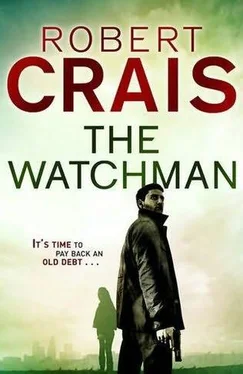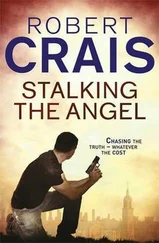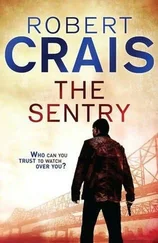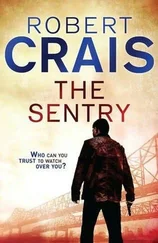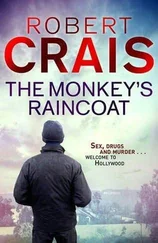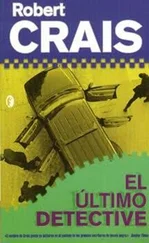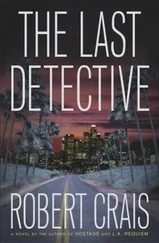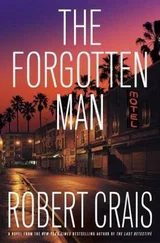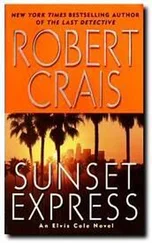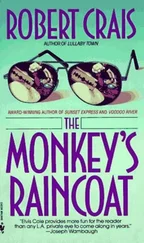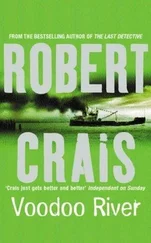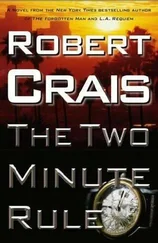Robert Crais
The Watchman
Create in me a clean heart, O God;
and renew a right spirit within me.
- PSALMS 51: 10
Hush! my dear, lie still and slumber.
Holy angels guard thy bed!
- ISAAC WATTS
pike-n.; a long-bodied, predatory fish
known for its speed and aggression.
- OXFORD AMERICAN DICTIONARY
City of Angels
The city was hers for a single hour, just the one magic hour, only hers. The morning of the accident, between three and four A. M. when the streets were empty and the angels watched, she flew east on Wilshire Boulevard at eighty miles per hour, never once slowing for the red lights along that stretch called the Miracle Mile, red after red, blowing through lights without even slowing; glittering blue streaks of mascara on her cheeks.
Accounting for her time before the accident, she would later tell police she was at a club on Yucca in Hollywood, one of those clubs du jour with paparazzi clotted by the door. She had spent an hour avoiding an aging action star while seeing her friends (trust-fund West-siders and A-list young Hollywood; actors, agents, and musicians she had no problem naming for the police), all taking cell-phone pictures of each other, blowing air-kisses and posing with rainbow drinks. The police sergeant who interviewed her would raise his eyebrows when she told him she had not been drinking, but the Breathalyzer confirmed her story. One Virgin Cosmo which she did not finish.
Three was her witching hour. She dropped a hundred on the valet for her Aston Martin, and red-lined away. Five blocks later-alone-she stopped in the middle of Hollywood Boulevard, shut the engine, and enjoyed a cashmere breeze. The scents of jasmine and rosemary came from the hills. The engine ticked, but she listened to find the silence. The stillness of the city at this hour was breathtaking.
She gazed up at the buildings and imagined angels perched on the edge of the roofs; tall slender angels with drooping wings; standing in perfect silence, watching her without expectation as if in an eternal dream: We give you the city. No one is watching. Set yourself free.
Her name was Larkin Conner Barkley. She was twenty-two years old. She lived in a hip loft downtown in an area catering to emerging painters and bicoastal musicians, not far from the Los Angeles River. Her family owned the building.
Larkin pushed the accelerator and felt the wind lift her hair. She bore south on Vine, then east on Wilshire, laughing as her eyes grew wet. Light poles flicked past; red or green, it didn’t matter and she didn’t care. Honking horns were lost in the rush. Her long hair, the color of pennies, whipped and lashed. She closed her eyes, held them closed, kept them shut even longer, then popped them wide and laughed that she still flew straight and true-
– 85-
– 90-
– 101-
– a two-hundred-thousand-dollar Tuxedo Black convertible blur, smudged by alabaster skin and Medusa copper hair, running wild and free across the city. She flashed over the arch at MacArthur Park, then saw the freeway coming up fast, the Pasadena; a wall guarding downtown. She slowed, but only enough, just barely enough, as cars appeared and streets narrowed, flying over the freeway into the tangle of one-way downtown streets-Sixth, Seventh, Fourth, Ninth; Grand, Hill, and Main. She turned where she wanted, went the wrong way, ran hard for the river; slowing more, finally, inevitably, as everything rippled and blurred-
She told herself it was the dry night wind and lashing hair, the way her eyes filled when her lonely race finished, but it was always the same whether the air was dry or not, whether her hair was down or up, so she knew. For those few minutes running across the city, she could be and was herself, purely and truly herself, finding herself in those moments only to lose herself once more when she slowed, falling behind as her true self ran free somewhere ahead in the empty night-
She lurched across Alameda, her speed draining like a wound.
– 65-
– 60-
– 55-
Larkin turned north on an industrial street parallel to the river. Her building was only blocks away when the air bag exploded. The Aston Martin spun sideways to a stop. White powder hung in the air like haze; sprayed over her shoulders and arms. The other car had been a flashing shape, no more real than a shadow in the sea, a flick of gleaming movement broken by the prisms of her tears, then the impact.
Larkin released her belt and stumbled from the car. A silver Mercedes sedan was on the sidewalk, its rear fender broken and bent. A man and a woman were in the front seat, the man behind the wheel. A second man was in the rear, closest to the impact. The driver was helping the woman, whose face was bleeding; the man in back was on his side, trying to pull himself up but unable to rise.
Larkin slapped the driver’s-side window.
“Are you all right? Can I help?”
The driver stared at her blankly before truly seeing her, then opened his door. He was cut above his left eye.
Larkin said, “Ohmigod, I’m sorry, I’m so sorry. I’ll call 911. I’ll get an ambulance.”
The driver was in his fifties, well dressed and tan, with a large gold ring on his right hand and a beautiful watch on his left. The woman stared dumbly at blood on her hands. The backseat passenger spilled out the rear door, fell to his knees, then used the side of the car to climb to his feet.
He said, “We’re okay. It’s nothing.”
Larkin realized her cell phone was still in her car. She had to get help for these people.
“Please sit down. I’ll call-”
“No. Let me see about you.”
The man from the backseat took a step but sank to a knee. Larkin saw him clearly, lit by the headlights of her car. His eyes were large, and so dark they looked black in the fractured light.
Larkin hurried to her car. She found her cell phone on the floor, and was dialing 911 when the Mercedes backed off the sidewalk, its rear fender dragging the street.
Larkin said, “Hey, wait-!”
Larkin called after them again, but they didn’t slow. She was memorizing their license plate when she heard the man from the backseat running away hard up the middle of the street.
A tinny voice cut through her confusion.
“Emergency operator, hello?”
“I had a wreck, an auto accident-”
“Was anyone injured?”
“They drove away. This man, I don’t know-”
Larkin closed her eyes and recited the license number. She was scared she would forget it, so she pulled out her lip gloss-Cherry Pink Ice-and wrote the number on her arm.
“Ma’am, do you need help?”
Larkin felt wobbly.
“Ma’am-?”
The earth tilted and Larkin sat in the street.
“Ma’am, tell me where you are.”
Larkin tried to answer.
“Ma’am, where are you?”
Larkin lay back on the cool, hard street. Dark buildings huddled over her like priests in black frocks, bent over in prayer. She searched their roofs for angels.
The first patrol car arrived in seven minutes; the paramedics three minutes later. Larkin thought it would end that night when the police finished their questions, but her nightmare had only begun.
In forty-eight hours, she would meet with agents from the Department of Justice and the U.S. Attorney’s. In six days, the first attempt would be made on her life. In eleven days, she would meet a man named Joe Pike.
Everything in her world was about to change. And it began that night.
The girl was moody getting out of the car, making a sour face to let him know she hated the shabby house and sun-scorched street smelling of chili and episote . To him, this anonymous house would serve. He searched the surrounding houses for threats as he waited for her, clearing the area the way another man might clear his throat. He felt obvious wearing the long-sleeved shirt. The Los Angeles sun was too hot for the sleeves, but he had little choice. He moved carefully to hide what was under the shirt.
Читать дальше
